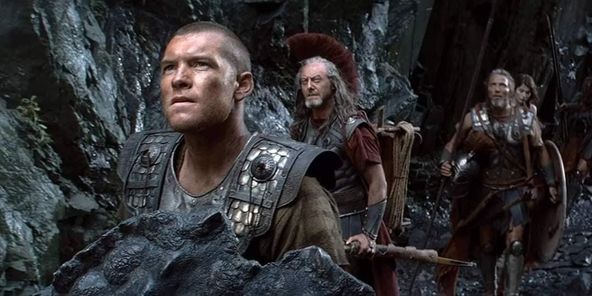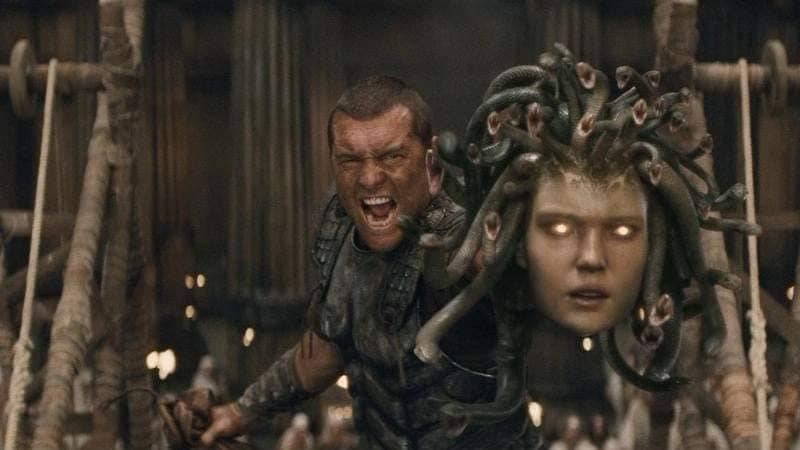Clash Of The Titans (2010)

Title: The Themes and Significance of “Clash of the Titans” (2010)
Introduction
“Clash of the Titans,” released in 2010, is a fantasy adventure film directed by Louis Leterrier, a remake of the 1981 classic of the same name. The film follows the story of Perseus, the mortal son of Zeus, as he embarks on a quest to defeat the monstrous Kraken and save the city of Argos. While the film is an action-packed spectacle filled with mythical creatures and breathtaking visuals, it also explores deeper themes of destiny, identity, and the struggle between mortals and gods.
Plot Summary
The narrative begins with Perseus, played by Sam Worthington, who is discovered as an orphaned child in a fishing village. As he grows, he learns of his divine heritage and the tumultuous relationship between humans and gods. When the city of Argos defies the gods, Zeus (Liam Neeson) sends the Kraken to punish them. To save the city, Perseus must venture into the perilous underworld and obtain the power to defeat the creature. Alongside a band of warriors, including the fierce soldier Draco (Gemma Arterton), Perseus confronts various challenges, including the Gorgon Medusa and the fearsome scorpion beasts.

Themes and Significance
- Destiny and Free Will: One of the film’s central themes is the tension between fate and free will. Perseus grapples with his identity as a demigod and his desire to carve his own path. Despite being born of divine lineage, he seeks to prove himself through bravery and resilience rather than relying solely on his heritage. This theme resonates with audiences as it reflects the universal struggle to assert control over one’s destiny.
- The Human Condition: “Clash of the Titans” explores the complexities of the human experience. The film depicts the frailty and vulnerability of humanity in the face of overwhelming divine power. Perseus’s journey symbolizes the fight against despair and the pursuit of hope, as he rallies his fellow warriors to confront impossible odds. This portrayal encourages viewers to embrace their humanity, showcasing courage and sacrifice as essential traits.
- Mortals vs. Gods: The film presents a vivid depiction of the conflict between gods and mortals, a recurring theme in Greek mythology. The gods, with their immense power, often intervene in human affairs, leading to chaos and suffering. This dynamic raises questions about the nature of divine authority and the moral implications of such power. Perseus’s defiance against the gods embodies the spirit of rebellion against oppression, making a statement about human resilience.
- Heroism and Sacrifice: Perseus embodies the archetypal hero who must confront not only external threats but also his internal fears and doubts. His journey is marked by sacrifices, including the loss of allies and the weight of his lineage. The film emphasizes that true heroism often comes at a personal cost, highlighting the importance of selflessness and determination in the face of adversity.

Conclusion
“Clash of the Titans” (2010) serves as more than just a visual spectacle; it delves into profound themes that resonate with the human experience. Through the lens of Greek mythology, it explores the interplay of fate and free will, the essence of heroism, and the enduring struggle against divine forces. As viewers are drawn into Perseus’s epic quest, they are reminded of the timeless values of courage, sacrifice, and the relentless pursuit of one’s destiny.











